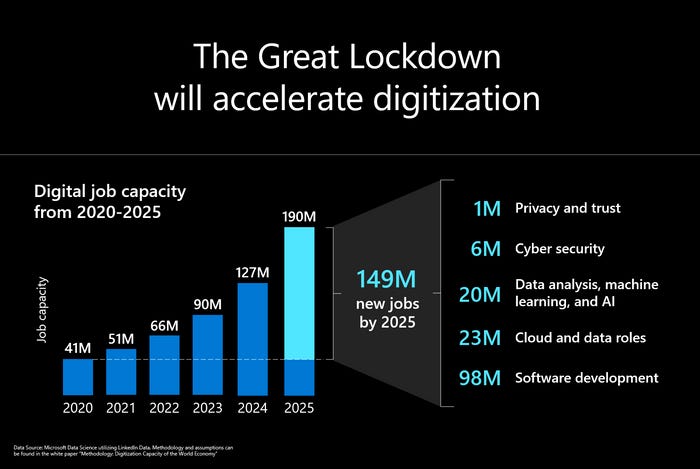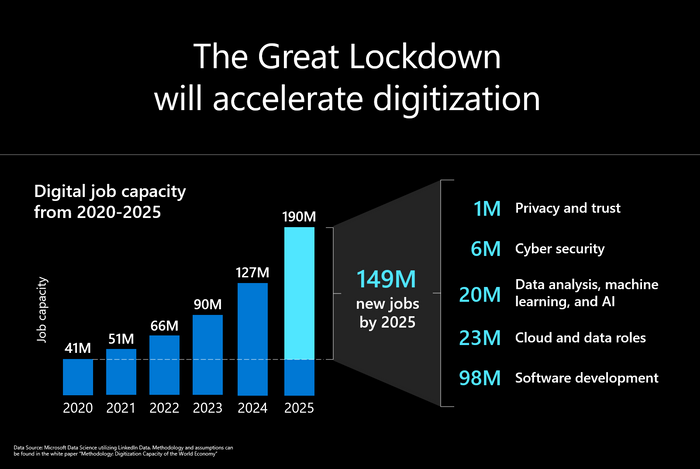As the dust begins to settle from the first wave of Coronavirus, and stores and restaurants begin to hesitantly reopen, we are beginning to see the carnage caused and how it has paved the way for the “new normal”.
Typically during economic crises, the weak are exposed and the strong get stronger, and I believe that’s what we’re seeing play out in the retail space today. Digitization is happening at an accelerated pace across every industry, but the impacts are most glaring within retail.
Legacy retailers have been able to put off the adoption of eCommerce for many years, but now they’re being exposed. The huge amounts of debt, high fixed costs (rent, real estate & inventory), and bloated business models can’t withstand a crisis of this magnitude. Now, the push to shift to eCommerce may be too late, as the online “browsing” experience seems to be already outdated. Stella & Dot founder, Jessica Herrin, comments on the topic of old school eCommerce, highlighting the inefficiencies.
The shift to eCommerce is inevitable at this point, but I think the online shopping experience will be completely reimagined and made much more efficient and personalized. Legacy companies are not equipped to weather this type of digital transformation and will likely be left in the dust.
1. Changing Tides
- Background: Not only are we seeing a huge shift towards eCommerce adoption, but consumer mindsets and attitudes are changing as well. As people spend more time at home, their purchasing behavior is impacted by their new personal circumstances, and an added emphasis is being placed on values and priorities.
- Details: Many people are financially squeezed right now, and as a result, there is an added element of intentionality placed on purchasing. Not only that, but consumers are also more health and environmentally conscious than ever; the majority (75%) are limiting food waste, and 67% are shopping more health-consciously. Demand for local food and products is also skyrocketing, as consumers look to support their local communities. 90% of these behaviors are predicted to continue after the pandemic.
- Background: “The Great Lockdown” as Microsoft says (I love this term, btw) will accelerate digitization, which means the need for more technical jobs will increase. Given that retail associate is one of the most common jobs in the US (~16M), the shift away from in-store purchases should be concerning for all Americans.
- Details: Microsoft announced a new initiative to train 25 million people worldwide on the digital skills needed in a post-COVID-19 world. They predict that 149M new digital jobs will be created by 2025, but first, we need to have a mass re-training of our society to fill these roles.

2. The Mall Experience
Lawsuits Between Brands and Landlords
- Background: As retail stores are going on their fourth month of mandated shutdown, brands are now trying to get out of longterm lease agreements, some of which go for 5+ years, citing a “forever shattered” retail landscape.
- Details: Huge retail stores like Valentino, Victoria’s Secret, and Gap are all in on-going lawsuits with their landlords regarding unpaid rent and requests to break leases. Historically, landlords have tended to have the upper hand in legal battles over rent. However, given the unprecedented circumstance of this pandemic retailers could be able to terminate long-term leases and set a precedent for thousands of other brands to do the same.
- Background: The start-up Fit:Match has developed 3D technology to scan your body in under a minute and tell you what size you are for different clothes at different retailers. They have teamed with one of the biggest U.S. mall owners, Brookfield Properties to start opening kiosks at malls across the country.
- Details: Brookfield Properties is scrambling to find ways to reinvigorate the shopping mall experience. Aside from investing in Fit:Match kiosks, they are investing $5B in retailers in an effort to help them weather the storm of the lockdown. Doesn’t seem like the best investment to me, but hey, what do I know?
What I’m Reading This Week:
- Lululemon buys Mirror in $500M Acquisition
- Macy’s Posts Nearly $400B in Losses
- Li Edelkoort Trend Forecaster InterviewOver 400 Advertisers Hit Pause On Facebook
Follow me on Social!
Xoxo Jackie

Recent Comments